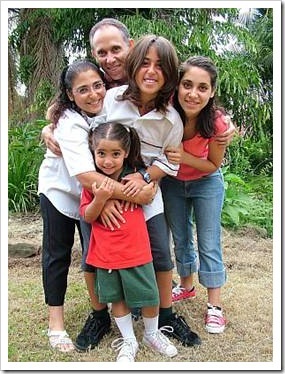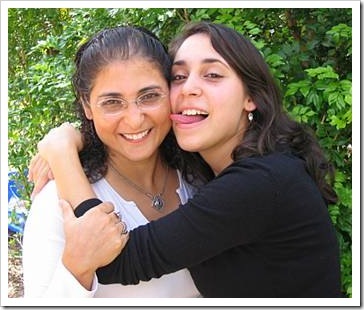 A typical progression of kids’ life goes something like this: they are born and everybody thinks they are cute, they grow up and start to struggle with school and friends and their behavior starts to deteriorate, they go through high school resenting everything their parents do while nearly killing themselves to be all grown up and then they leave home as soon as they can to start working hard and partying harder.
A typical progression of kids’ life goes something like this: they are born and everybody thinks they are cute, they grow up and start to struggle with school and friends and their behavior starts to deteriorate, they go through high school resenting everything their parents do while nearly killing themselves to be all grown up and then they leave home as soon as they can to start working hard and partying harder.
Once they leave home, young people (they are not kids anymore) would rather die than ask for their parents’ help and guard their humble residence and small pile of second-hand things with their life, looking at anyone who has not left home yet as if they are still just kids.
Eden came back from work this week and said the girls at work treated her like she was young and she felt excluded.
“What do you mean?”
“They sit there and talk about drinking and working more than one job and struggling with money and with keeping a home and when I try to participate, they tell me I don’t understand, because I haven’t left home yet”, she said.
“Well, you are younger than they are and you haven’t left home yet, so that’s all true”.
“Yes, but they make it sound like they’re somehow better because of it and I’m not going to leave home just to pretend I’m grown up. I like living with you guys. You help me a lot and I love spending time with Tsoof and Noff and coming back to a place where people support me”, Eden said.
Without going into too much detail, the girls at the office found themselves at a point where leaving home was the best thing they could do and now they encourage one another to make themselves feel better about it, while making Eden feel left out simply because she has better options.
So get this: every parent wants their kids to stay away from alcohol, drugs and unsafe sex and to keep in touch when they grow up. Our daughter is doing all of this. Every child wants parents who understand and support them (emotionally and financially). We are doing this. Yet, that is precisely the source of Eden’s problem.
Are we doing the right thing for Eden? Have we been good parent?
Here is another example.
 When we lived in California (in Santa Clara, if you really want to know), our home was in an apartment complex. It was a great life and we were fortunate to have many families just like us to associate with – high-tech husband, smart kids and stay-at-home moms.
When we lived in California (in Santa Clara, if you really want to know), our home was in an apartment complex. It was a great life and we were fortunate to have many families just like us to associate with – high-tech husband, smart kids and stay-at-home moms.
Having quite a bit of free time on their hands, the “wives club” met frequently and, as you would expect, talked mostly about their husbands and children. Ronit is a very social person and was eager to attend those gatherings and make friends, but soon started coming back with stories of rejection.
“I sit there and listen to all these women who have a really good life complaining about their husbands traveling or being tired and about their kids’ behavior”, she said, “When my turn comes, I tell them you always come home in the evening and how great Eden is, but this breaks their conversation and they don’t want to involve me anymore”.
“But we know some of the guys and some of the kids and they’re pretty OK”, I said.
“Yes, but they get together for a bitching session and get all upset even when I say nice things about THEIR kids”, Ronit said, “I’m not going to say bad things about you and the kids just to be accepted by them. I’d rather stay home or look for friends who appreciate what they have”.
Again, the best thing you can hope for in life is to be able to notice and enjoy the good things and accept the bad things, but in this case, Ronit was being ostracized precisely for doing the “right” thing.
One more story, OK?
When we lived in Texas (Arlington, but not the cemetery town), Ronit’s sister Nurit came to stay with us for a bit. This was in the pre-Skype era (can you believe it?) and for a while, we had been telling our families about our life by letters. Among other things, Ronit (the family writer) had told everyone how well Eden was adjusting, all the clever little things she had done (she was just turning 5 at the time) and how proud we were of her.
When Nurit stayed with us, she saw Eden up close and personal, including bedtime struggles, food arguments, “You’re not wearing THIS, young lady” discussions and so on. Eden was a very good girl by any measure, but she certainly was not perfect.
 So Nurit said to Ronit, “You know, in all the letters and phone calls you’ve never mentioned all these challenges you have with Eden, only the good stuff. That’s not the truth, so you’re being dishonest about her or maybe you don’t notice when your daughter is having problems”.
So Nurit said to Ronit, “You know, in all the letters and phone calls you’ve never mentioned all these challenges you have with Eden, only the good stuff. That’s not the truth, so you’re being dishonest about her or maybe you don’t notice when your daughter is having problems”.
Ronit’s reply was, “I notice what happens with Eden – the good and the bad – but I choose to focus on the good to make it grow. If Eden thinks she’s great, she will be. If Eden’s family members believe she’s great, she will be great to them and that will help her in life”.
But Nurit was not convinced (although I think she is now, since she became a mother).
What is better than planting the seeds of greatness in your child and the people who are closest to them? Apparently, doing so is still not all rosy and makes us lose some people’s favor.
So what is the point of all this?
First, we must realize that being good parents does not guarantee a problem-free life. In fact, we may be isolating our kids from some people by making them kind, diligent and confident. We may be missing out on career opportunities, hobbies and looking great. No matter what we choose, there is always a downside. C’est la vie.
This is no different to being an exceptional artist, a super-smart scientist, a really famous celebrity or outrageously rich. The higher up you go, the fewer the people who are like you and are able to feel comfortable in your presence.
Second, that should not stop you from trying to be great anyway and I will tell you why.
By going to university, Eden now associates with people who are very much like her – young, still living at home, intelligent, friendly and open-minded. She may sometimes feel out-of-place at work, but her student friends are quickly starting to make up for the difference by making her feel great.
By sticking to her family values and being positive, Ronit encouraged me to keep refusing to travel and spend more time with the kids than other husbands. She also gave Eden the feeling she was valued, so Eden always felt comfortable talking to her, cuddling with her and saying good stuff about her in return.
 By planting seeds of confidence in Eden, and later on in Tsoof and Noff, Ronit has make them a gazillion times more stable, confident and happy than they would be otherwise. In return, she eliminated many of the tough problems many parents have to deal with on a daily basis before they even started.
By planting seeds of confidence in Eden, and later on in Tsoof and Noff, Ronit has make them a gazillion times more stable, confident and happy than they would be otherwise. In return, she eliminated many of the tough problems many parents have to deal with on a daily basis before they even started.
So I say stick to your values and be a great parent by knowing WHY it is good for you and your kids. No matter what others say, be sure that having loving relationships is a hundred times better than being accepted at a bitching session and seeing your child’s happy face as you walk through the door at 5:30pm is a thousand times better than any praise any boss can give you.
When you know why, the “how” becomes much easier.
Happy parenting,
Gal
No posts found








